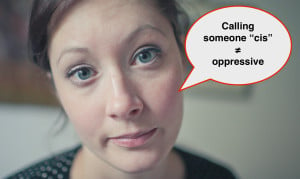
A parent and child smile with a burger, corn on the cob, watermelon, and a glass of lemonade in the foreground.
(Content Warning: disordered eating)
I found myself doing it again the other day – offhandedly disparaging something my kids were eating by saying, “Ugh, more junk? Can’t you please eat something that’s good for you?” and then getting into a pointless discussion about how many carrots or apple slices they then had to ingest to make up for the sugar consumption that had just happened.
Sure, I tried to frame the conversation in terms of “balance” and giving their bodies what they needed to run properly. But I had also had fallen into the trap of labeling some foods as inherently “good” and others as just plain “bad.” Junk versus fuel. Annoyance over one choice versus praise for another.
As a health educator, I know enough about nutrition basics to understand that peanut butter will fuel your body in a way that a lollipop won’t. But I also fear that emphasizing these points constantly, and with the negative tone so many of us adopt, has resulted in far too many people having far too fraught a relationship with food. Relationships that are much more damaging to our kids’ overall health than is the actual substance of what they eat.
I also know that it’s really hard not to slip into talking about food in moral terms that are often couched in the language of nutrition and health.
From “I was so naughty yesterday – I ate so many carbs” to “I was so good today – I stuck to my diet” and “Well, I had the cake since I allow myself a cheat day once a month,” many of us don’t even think twice about how we discuss what we eat, and what our children take away when they hear us talk in this way.
Yet we really need to think about the impact on our kids.
Because when we fail to consider the messages that come wrapped up in such sentiments, then place strict limits on how we eat (and on how our kids eat), we’re setting them up to think of food in terms of virtue or vice.
And while there are a lot of ways to be a good person in the world, I would argue that enjoying a bag of chips more than a plate of steamed broccoli does not get you more points on any measure of human decency.
So here are three things to keep in mind when we talk about food with our kids that can help prevent them from learning that how they choose to eat determines their worth as a person – and that can offer some protection from the negative effects of such a view now and in the future.
1. Remind Your Kids That Living an Ethical Life Means Something Different to Everyone
When it comes to food, plenty of people make thoughtful, considered, conscious choices about their consumption and purchases.
From avoiding companies owned by big tobacco, or those which exploit their workers, to going locavore, or eating vegetarian or vegan out of a belief in animal rights, making decisions about how we eat can be an important component of our own ethical framework.
But when we consider what we want teach our children about food, how should we weigh such values against our concerns about turning food into an issue of morality?
There are a few things we can keep in mind.
We can explain to our kids that in our own family, we are able to, are interested in, and/or have concerns about whatever issue is relevant. But when we do so, we can also stress that not every family is like ours.
And if we want to help our kids develop autonomy, certain issues can be presented as choices and not as decrees. I know plenty of adults who are vegetarians, but who don’t expect this of their kids. Plus, I have a number of Jewish friends who keep kosher, but who have made this an option, and not a familial requirement, for their children.
It may also be helpful to for us and our kids to remember that while we may have beliefs about how we would like to eat, not following these a hundred percent of the time, or not adhering to them at every turn, doesn’t mean we have failed.
It’s often simply just the fact of being a human in the world where one has to change and adapt as circumstances require.
For example, do you prefer to only eat organic, grass-fed beef? Great. But is it more ethical to throw out and waste the mass-produced burger your neighbor serves you at a BBQ? And what does that teach your kids if you do?
As parents, we have the power to help shape our kids’ views, and we can remind them that plenty of decent, ethical people eat in plenty of different ways.
But instead of doing this, a lot of us inadvertently find ourselves casually disparaging someone’s character for how they eat by saying things like, “I have to get you to eat real food before you go over to Aunt Jenny’s. She just feeds her kids garbage.” Or by musing about the neighbors, “It’s no wonder those kids didn’t make the soccer team – all they eat is McDonald’s and take-out Chinese over there.”
But just like you can’t determine a person’s health solely based on their size, you also can’t determine much about their value system based solely on what they ate at lunch. For all you know, the family of McDonald’s fans is sponsoring Syrian refugees, or taking in foster kids, or fighting the patriarchy in ways you might have never imagined.
A lot of how we view people’s food choices comes more from a place of classism than concern, and identifying the role this plays in our views on food is key.
2. Avoid Religious Terms When Talking About Food
In recent years, there has been more and more discussion of how a commitment to certain forms of eating almost mirrors adherence to religious doctrine. (Indeed, it has been seen in pro-anorexia communities where behavior can resemble that cult indoctrination).
Marketers, too, have long capitalized on this phenomenon by using language that can sound oddly dogmatic.
We’re all accustomed to ads for products we are told are “sinfully” delicious or a “guilty” pleasure. And everyone has at least a passing familiarity with the claims that everything from juices to granola bars are “pure,” “natural,” or even “cleansing.”
But it’s not just product pushers using this religiously tinged language. A lot of us talk about food in this way ourselves.
And such talk makes the stakes higher. Now, picking the cookie over the kale is not just a matter of taste and nutrition. It is also an issue of willpower and strength of character. Choosing the budget yogurt over the organic isn’t only about finances, but also about virtue.
Really, the Puritan ethos that the US was founded on has long framed the ability to deny oneself pleasure as somehow morally superior to any other option. And when it comes to food, that which only tastes good and has no other purpose is seen as a decadent indulgence.
As Sarah Boesveld writes in Canada’s National Post, the growing popularity of “clean eating” – which can (but doesn’t necessarily) refer to things like raw food and juicing, the paleo diet, gluten-free regimens, or strict veganism – has created what she terms a “moral hierarchy for food.”
This hierarchy then positions certain food choices as more decent, humane, and righteous than others.
The articles cites the work of professor Gillian McCann who argues that “the rise in food movements has coincided with a decline of religion in society, with many people seeking familiar values such as purity, ethics, goodness. But these movements also tend to encourage behaviors that have steered a generation away from religion: judgment, self-righteousness, an us-versus-them mentality.”
So even if our families aren’t religious, let alone adherents of religious dietary restrictions (say Hindu vegetarianism, Jewish kashrut, Muslim halal, or Mormon temperance), many of us find ourselves using religious language when discussing food with our kids.
But particularly if we’re not religious, and if we question the constraints of organized religion like those cited by McCann, then maybe the message of morality isn’t the one we want to be giving our kids when we talk about what they eat. Maybe we want to impart our values in different ways.
And there are plenty of ways to do that.
For example, you can suggest that instead of asking for birthday presents, your kids pick a cause to have people donate to. (Admittedly, my daughter blanched at this idea when I suggested it, but your children might be into it!)
You can also volunteer as a family, or by yourself. I know when I was growing up, my dad was a regular blood donor, and my mom read books on tape for a local visual impairment agency – and doing so just seemed like a normal adult responsibility.
Another option is to support community service initiatives in your kids’ schools and to treat their participation in these projects are you would any other extracurricular activity.
Really, even sharing your political views – say, by telling your kids how you feel about any number of the proposed policies of the incoming administration – is going to give your children a sense of right and wrong, and will help them develop a solid set of core values that don’t have anything to with how many candy bars they ate after Halloween and whether they should feel shame about their indulgence.
3. Move Criticisms of Food Out of the Individual Moral Realm and Into the Larger, Political One
Most people want to feed their kids healthy, nutritious food. But for a whole host of reasons, not everyone is able to do that.
And while we might hear that poverty (a big factor), a lack of education (a notable one), or food deserts (a debatable cause at best) are the culprits, there is something else going on, as well: the ubiquitous presence of big business in our food systems.
As Kaila Prins explains on this site, the real factors barring people from eating more nutritious food lie less in personal choice and more in corporate manipulation of information.
This can be seen in things like government subsidies to big businesses who grow low-nutrition crops and then label them as healthy, in the payments to people in the health and nutrition fields to shill certain products, in the misplaced focus on the “obesity crisis” and the fat-shaming it engenders, and in the deliberate trotting out of contradictory and confusing food studies, which is often funded by the food industry itself, and which then allows companies to introduce new products at every turn.
And while previous generations found themselves lured by the promise of fast and easy food, many of today’s products are trying to capitalize on the growing interest in health, clean eating, and weight loss.
Indeed, the “functional foods industry,” which is comprised of foods meant to serve a specific purpose (like vitamin packed beverages, weight-loss supplements, gut-soothing probiotics, and health-boosting “superfoods”) is growing at breakneck speed.
According to a report by Global Industry Analysts, Inc., sales of such items exceeded $120 million in 2013 and are expected to hit nearly $160 million by 2017.
So what should we do?
Prins suggests:
Instead of getting upset at individuals who make choices to eat certain foods based on what they do or do not understand about them, let’s take this to the Academy of Nutrition and Dietetics. Let’s take this to the USDA. Let’s go to the schools that are educating our doctors and nutritionists and petition to have sponsored education taken off the menu. Let’s get our food manufacturers to own up to their marketing ploys.
Doing this will help us feel empowered, it will channel our anger in the right direction, and it will help prevent the finger-wagging that so often accompanies our discussions of just what should be put on the table for dinner.
Really, when you’re considering the impact of what you feed your kids on their physical and mental health, your should know they will likely be better off without the endless calorie counting, the intense monitoring of every ounce of sugar they ingest, or the jumping onto the newest food craze bandwagon.
Your best bet is to educate your kids about some nutrition basics, let them eat things they enjoy, try to make sure they consume a range of foods with an eye towards making more of those fresh and less of them packaged and sugary, and make criticism of food more about the dangers of big food and less about the fact that an individual chooses to eat the product that big food is selling.
But Why Does It Even Matter?
Today’s movement towards “clean eating” and our demonization of fat means that, more than ever, food is being discussed in moral terms.
This has a number of pretty significant effects.
Framing food as inherently good or bad sets our children up to judge themselves and others. It also reinforces social hierarchies and classism, since so much of what this style of eating celebrates is out of reach for so many. It lets the real culprits of poor health – namely, poverty and an increasingly shady food industry – off the hook.
And it puts our kids at increasing risk for eating disorders, specifically, orthorexia, a term which literally means “fixation on righteous eating” and which refers to a condition that is just similarly dangerous as better know eating disorders like anorexia and bulimia nervosas.
It’s not that food moralizing is brand new. Plenty of adults grew up with food being used to treat or punish. Maybe we were told to clear our plates because there were children starving somewhere in the world, or maybe we were served the same aging meal day after day as some sort of life lesson about appreciating food.
Alternately, we might have been given candy or dessert for being well-behaved, or denied it when we weren’t. Indeed, a lot of us are accustomed to food being used as a physical and emotional tool.
But while food has long been presented in this manner, a lot of us have doubled down on how we talk to our own kids about it, and the impact on them is troubling.
So instead of hearing that food is good or bad, they could stand to be reminded that there is no one way to eat that works for everyone.
Instead of tut-tutting their classmates’ lunches, they can be told that every family has different preferences, different cultures, different priorities, and different access to food.
And beyond learning to read a nutrition label, they can learn that food is as political as it is personal, and that their relationship to it just shouldn’t be as complicated as we far too often make it out to be.
[do_widget id=’text-101′]
Ellen Friedrichs is a Contributing Writer for Everyday Feminism. She’s a health educator, sometimes writer, and mom. She has worked at Manhattan’s Museum of Sex, developed sex education curricula in Mumbai, India, and run HIV prevention programs for at-risk teens in the South Bronx. Currently, Ellen runs a middle and high school health education program and teaches human sexuality at Brooklyn College. More of Ellen’s writing can be found here and here. Follow her on Twitter @ellenkatef.
Search our 3000+ articles!
Read our articles about:
Our online racial justice training
Used by hundreds of universities, non-profits, and businesses.
Click to learn more




















